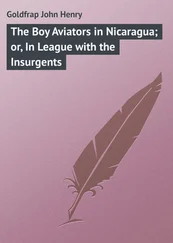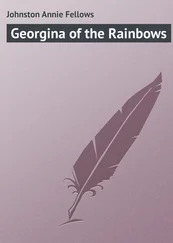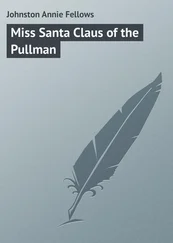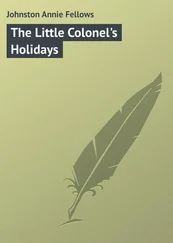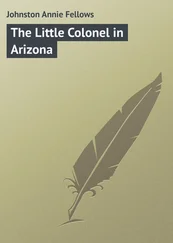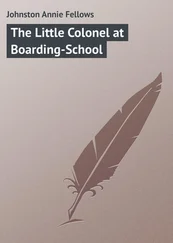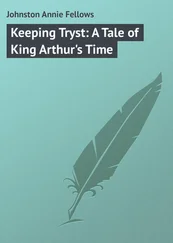Annie Johnston - In League with Israel - A Tale of the Chattanooga Conference
Здесь есть возможность читать онлайн «Annie Johnston - In League with Israel - A Tale of the Chattanooga Conference» — ознакомительный отрывок электронной книги совершенно бесплатно, а после прочтения отрывка купить полную версию. В некоторых случаях можно слушать аудио, скачать через торрент в формате fb2 и присутствует краткое содержание. ISBN: , Жанр: foreign_prose, на английском языке. Описание произведения, (предисловие) а так же отзывы посетителей доступны на портале библиотеки ЛибКат.
- Название:In League with Israel: A Tale of the Chattanooga Conference
- Автор:
- Жанр:
- Год:неизвестен
- ISBN:http://www.gutenberg.org/ebooks/40527
- Рейтинг книги:4 / 5. Голосов: 1
-
Избранное:Добавить в избранное
- Отзывы:
-
Ваша оценка:
- 80
- 1
- 2
- 3
- 4
- 5
In League with Israel: A Tale of the Chattanooga Conference: краткое содержание, описание и аннотация
Предлагаем к чтению аннотацию, описание, краткое содержание или предисловие (зависит от того, что написал сам автор книги «In League with Israel: A Tale of the Chattanooga Conference»). Если вы не нашли необходимую информацию о книге — напишите в комментариях, мы постараемся отыскать её.
In League with Israel: A Tale of the Chattanooga Conference — читать онлайн ознакомительный отрывок
Ниже представлен текст книги, разбитый по страницам. Система сохранения места последней прочитанной страницы, позволяет с удобством читать онлайн бесплатно книгу «In League with Israel: A Tale of the Chattanooga Conference», без необходимости каждый раз заново искать на чём Вы остановились. Поставьте закладку, и сможете в любой момент перейти на страницу, на которой закончили чтение.
Интервал:
Закладка:
Yet, when she had wearily locked her door, she realized that she had never been so entirely alone before in all her life. Home seemed so very far away. Her surroundings were so strange. Her extreme weariness intensified her morbid feeling of loneliness. She remembered such a sensation coming to her one night in mid-ocean, but she had tapped on her state-room wall, and her father had come to her immediately. Now she might call a weary lifetime. No earthly voice could ever reach him.
With a throbbing ache in her throat, and hot tears springing to her eyes, she opened her valise and took out a little photograph case of Russia leather. Four pictured faces looked out at her. She was kneeling before them, with her arms resting on the low dressing-table. As she gazed at them intently, a tear splashed down on her black dress.
"O, it isn't right! It isn't right," she sobbed, passionately, "for God to take everything! It would have been so easy for him to let me keep them. How could he be so cruel? How could he take away all that made my life worth living, and then let little Jack suffer so?"
She laid her head on her arms in a paroxysm of sobbing. Presently she looked up again at her mother's picture. It was a beautiful face, very like her own. It brought back all her happy childhood, that seemed almost glorified now by the remembered halo of its devoted mother-love.
The years had softened that grief, but it all came back to-night with its old-time bitterness.
The next face was little Jack's – a sturdy, wide-awake boy, with mischievous dimples and laughing eyes. But the recollection of all he had suffered since his accident, made her feel that she had lost him also, in a way. The physician had assured her that he would be the same vigorous, romping child again; but she found that hard to believe when she thought of his present helpless condition.
She pressed the next picture to her lips with trembling fingers, and then looked lovingly into the eyes that seemed to answer her gaze with one of steadfast, manly devotion.
"O, it isn't right! It isn't right!" she sobbed again. How it all came back to her – the happy June-time of her engagement! – the summer days when she dreamed of him, the summer twilights when he came. Every detail was burned into her aching memory, from the first bunch of violets he brought her, to the judge's tender smile when she spread out all her bridal array for him to see. Such shimmering lengths of the white, trailing satin; such filmy clouds of the soft, white veil, destined never to touch her fair hair! For there was the telegram, and afterward the darkened room, and the darker hour, when she groped her way to a motionless form, and knelt beside it alone. O, how she had clung to the cold hands, and kissed the unresponsive lips, and turned away in an agony of despair! But as she turned, her father's strong arms were folded about her, and his broken voice whispered comfort.
The dear father! It had been doubly desolate since he had gone, too.
Kneeling there, with her head bowed on her arms, she seemed to face a future that was utterly hopeless. Except that Jack needed her, she felt that there was absolutely no reason why she should go on living.
The ticking of her watch reminded her that it was nearly midnight. In a mechanical way, she got up and began to arrange her hair for the night.
After she had extinguished the light, she pulled aside the curtain, and looked out on the unfamiliar streets.
The moon had come up. In the dim light the crest of old Lookout towered grimly above the horizon. A verse of one of the Psalms passed through her mind: "I will lift up mine eyes unto the hills, from whence cometh my help."
"No," she whispered, bitterly, "there is no help. God doesn't care. He is too far away."
As she went back to the bed, the words of the novice in Muloch's "Benedetta Minelli" came to her:
"O weary world, O heavy life, farewell!
Like a tired child that creeps into the dark
To sob itself asleep where none will mark,
So creep I to my silent convent cell."
"I wish I could do that," she thought; "lock myself away with my memories, and not be obliged to keep up this empty pretense of living, just as if nothing were changed. It might not be so hard. How I dread to-morrow, with its crowds of strange faces! O, why did I ever come?"
Next morning, the guests gathered out on the vine-covered piazza to discuss their plans for the day.
There were two theological students from Boston, a young doctor from Texas, and the son of a wealthy Louisiana planter. A Kansas farmer's wife and her sister, a bright little schoolteacher from an Iowa village, and three pretty Georgia girls, completed the party.
Bethany sat a little apart from them, wondering how they could be so greatly interested in such things as the most direct car-line to Missionary Ridge, or the time it would take to "do" the old battle-grounds.
The youngest Georgia girl was about her own age. She had made several attempts to include Bethany in the conversation, but mistaking her reserve and indifference for haughtiness, turned to the Louisiana boy with a remark about unsociable Northerners.
Their frequent laughter reached Bethany, and she wondered, in a dull way, how anybody could be light-hearted enough even to smile in such a world full of heart-aches. Then she remembered that she had laughed herself, the day before, when Mr. Cragmore was with them. It rather puzzled her now to know how she could have done so. Her wakeful night had left her unusually depressed.
An open, two-seated carriage stopped at the gate. Mrs. Marion and George Cragmore were on the back seat. Mr. Marion and Dr. Bascom sat with the driver. Bethany had been waiting for them some time with her hat on, so she went quickly out to meet them. Mr. Cragmore leaped over the wheel to open the gate, and assist her to a seat between himself and Mrs. Marion.
They drove rapidly out towards Missionary Ridge. To Bethany's great relief, neither of her companions seemed in a talkative mood. Mr. Marion, who was an ardent Southerner, had been deep in a political discussion with Dr. Bascom. As they stopped on the winding road, half way up the ridge, to look down into the beautiful valley below, and across to the purple summit of Lookout, Mr. Marion drew a long breath. Then he took off his hat, saying, reverently, "The work of His fingers! What is man, that Thou art mindful of him?" Then, after a long silence: "How insignificant our little differences seem, Bascom, in the sight of these everlasting hills! Let's change the subject."
Mrs. Marion, absorbed in the beauty on every side, did not notice Bethany's continued silence or Cragmore's spasmodic remarks. The fresh air and brisk motion had somewhat aroused Bethany from her apathy. First, she began to be interested in the constantly-changing view, and then she noticed its effect on the erratic man beside her.
From the time they commenced to ascend the ridge he had not spoken to any one directly, but everything he saw seemed to suggest a quotation. He repeated them unconsciously, as if he were all alone; some of them dreamily, some of them with startling force, and all with the slight brogue he spoke so musically.
"Every common bush afire with God," he murmured in an undertone, looking at a dusty wayside weed, with his soul in his eyes.
Bethany thought to herself, afterwards, that if any other man of her acquaintance had kept up such a steady string of disjointed quotations, it would have been ridiculous. She never heard him do it again after that day. It seemed as if the old battle-fields suggested thoughts that could find no adequate expression save in words that immortal pens had made deathless.
The warm odor of ripe peaches floated out to them from grassy orchards, where the trees were bent over with their wealth of velvety, sun-reddened fruit. Seemingly, Cragmore had taken no notice of Bethany's depression when she joined them, or of the soothing effect nature was having on her sore heart. But she knew that he had seen it, when he turned to her abruptly with a quotation that fitted her as well as his first one had the wayside weed. He half sang it, with a tender, wistful smile, as he watched her face.
Читать дальшеИнтервал:
Закладка:
Похожие книги на «In League with Israel: A Tale of the Chattanooga Conference»
Представляем Вашему вниманию похожие книги на «In League with Israel: A Tale of the Chattanooga Conference» списком для выбора. Мы отобрали схожую по названию и смыслу литературу в надежде предоставить читателям больше вариантов отыскать новые, интересные, ещё непрочитанные произведения.
Обсуждение, отзывы о книге «In League with Israel: A Tale of the Chattanooga Conference» и просто собственные мнения читателей. Оставьте ваши комментарии, напишите, что Вы думаете о произведении, его смысле или главных героях. Укажите что конкретно понравилось, а что нет, и почему Вы так считаете.


